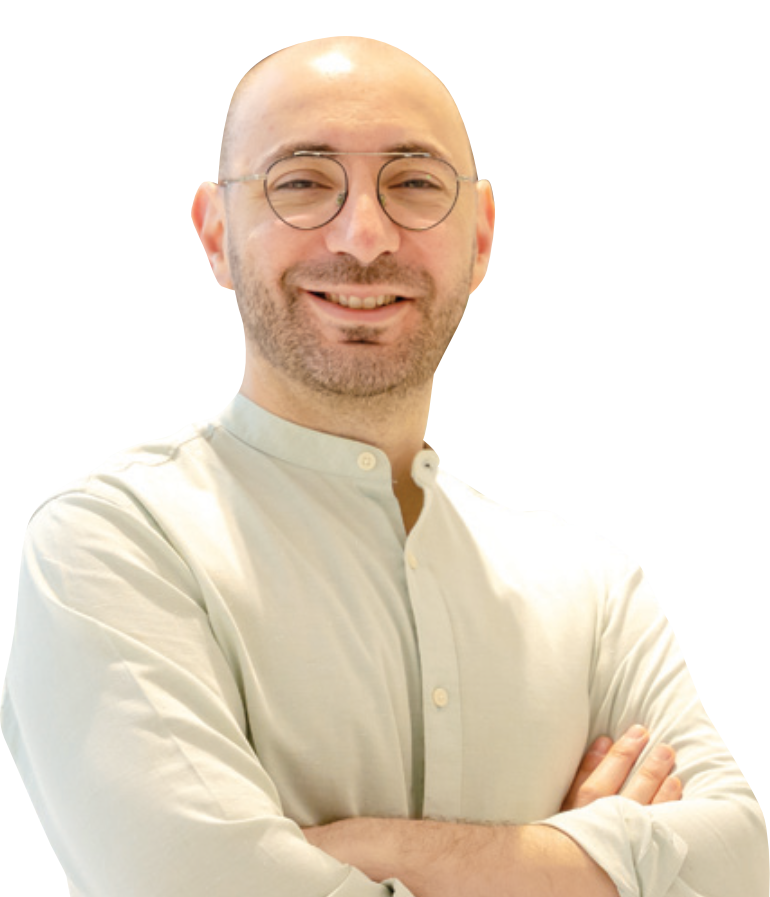CAIRO: Startups in the Middle East enjoyed a year marked by significant funding and opportunities for growth.
The region witnessed an unprecedented surge in startup activities in 2023 with young talent, fresh ideas, and new products receiving adequate support in the form of increased investment and partnership offers.
Saudi Arabia led the way with fintech firm Tabby emerging as one of the most dynamic startups in the region surpassing expectations.
Established in 2019, Tabby is a fintech startup based in Saudi Arabia that specializes in buy now, pay later services.
In an interview with Arab News, Hosam Arab, founder of Tabby, discussed the company’s significant achievements in 2023 and his vision for 2024.
Relocation
Tabby, originally based in the UAE, made a significant move by relocating its headquarters to Saudi Arabia in 2023.
“Millions in Saudi Arabia depend on Tabby today, making our establishment in the Kingdom a crucial step toward reinforcing our commitment to the community and advancing financial freedom,” said Arab.
Tabby’s initiatives are in sync with Saudi Arabia’s goals of fostering financial inclusion and literacy, which are key to the nation’s economic development.

Tabby founder Hosam Arab. (Supplied)
Explaining the strategic move, Tabby's founder said: “Given that Saudi Arabia is now our largest market, relocating our headquarters there was crucial. We made this move to be closer to our customers and stakeholders, including regulators, as we deepen our investment in the market. This repositioning is vital for us to better serve and understand our Saudi customer base.”
Arab further highlighted that approximately 75 to 80 percent of Tabby’s customer base originates from Saudi Arabia, underscoring the market’s significance for the company.
The fintech achieved a crucial regulatory milestone by obtaining a permit from the Saudi Central Bank, known as SAMA.
“It was vital for us to gain this regulatory approval in Saudi Arabia for our buy now, pay later services. A considerable amount of effort was invested in securing this permit,” the entrepreneur said.
“The process was quite demanding, but successfully navigating it was a significant accomplishment for us. It’s especially important considering the market’s relevance to our operations,” he added.
Arab also emphasized that one of Tabby’s most significant accomplishments in 2023 was demonstrating resilience and achieving growth despite global challenges.
Reflecting on the broader industry, he said: “Navigating a business through global challenges where many of our peers in mature markets have struggled is noteworthy. The space itself has faced difficulties, but what we’ve managed to highlight is the relevance and potential of this market.”
Elaborating Tabby’s approach, he said: “We are addressing a key consumer need, which has enabled us to build a sizeable business. This achievement not only shows promise but also delivers profitability, which is crucial for our investors.”
A unicorn is born
Tabby successfully raised $250 million in a series D funding round, attaining “unicorn” status by the end of the year. A company is termed a unicorn when it reaches a valuation of $1 billion without being listed on the stock market.
Arab expressed gratitude for the year’s successful conclusion, with Tabby raising one of the largest equity rounds in the region, leading to a valuation of $1.5 billion. This funding is pivotal for the company’s future growth.
He highlighted that this achievement follows a challenging 2022, noting that the company is now on a path to profitability.
“Entering 2023, we had a strong finish last year which set the stage for continued, profitable growth. This has helped us to further solidify our position as market leaders throughout the year,” he added.
Moreover, the company secured $700 million in debt financing from J.P. Morgan in December, further solidifying its balance sheet amid increasing demand for its BNPL service.
Achievements
Arab further reflected on the significance of these achievements, considering both internal and global perspectives.
“These milestones are crucial for us. On one hand, there’s the regulatory aspect within the Kingdom. On the other, when viewed through a global lens, observing the state and challenges of the buy now, pay later space worldwide, the fact that we’ve been able to build a sizeable and profitable business in this region is quite noteworthy,” he said.
Tabby’s impressive growth trajectory in 2023 is evident from statistics, with the company experiencing a threefold expansion compared to the previous year.
Arab provided an overview of Tabby’s current scale, saying: “In terms of high-level figures, we are processing around $6 billion in transaction volume annually. Our user base has grown to just over 10 million registered users, and we have partnered with over 30,000 active merchants across the region.”
The year ahead
The company is focused on elevating customer relations through an enhanced value proposition and service expansion.
Arab detailed plans to roll out the Tabby Card in Saudi Arabia, following its successful introduction in the UAE.
This new offering is designed to improve the shopping experience, adding greater flexibility to Tabby’s BNPL services.
Arab discussed the ongoing development of the Tabby Shop feature, emphasizing its potential despite being in the early stages.
“Tabby Shop is still evolving, and we’re witnessing increased customer engagement. We’re continuously adding new features, like the recently introduced favoriting option. This allows customers to start their shopping journey with Tabby, turning it into a discovery tool to aid their shopping process,” he explained.
“Currently, we host over 2 million products from our merchant partners.”
For these partners, Tabby Shop presents significant value by directing relevant customer traffic to their offerings.
Arab also touched on enhancing this value, “We’re exploring ways to provide our merchant partners with more insights about the users we direct to them, enhancing the overall value of their presence on Tabby Shop.”
The company also plans to pursue an initial public offering on the Saudi stock market. However, the timeline for this significant move has not yet been disclosed.
















